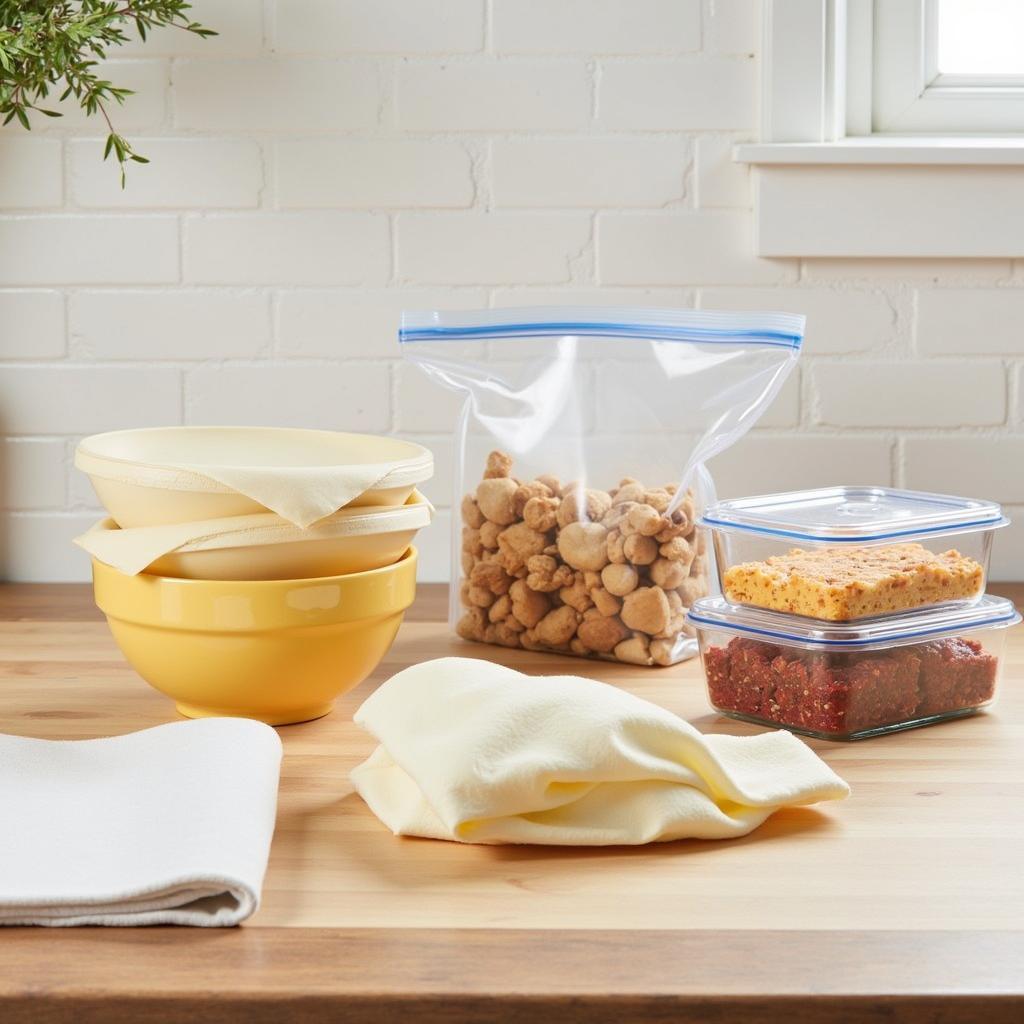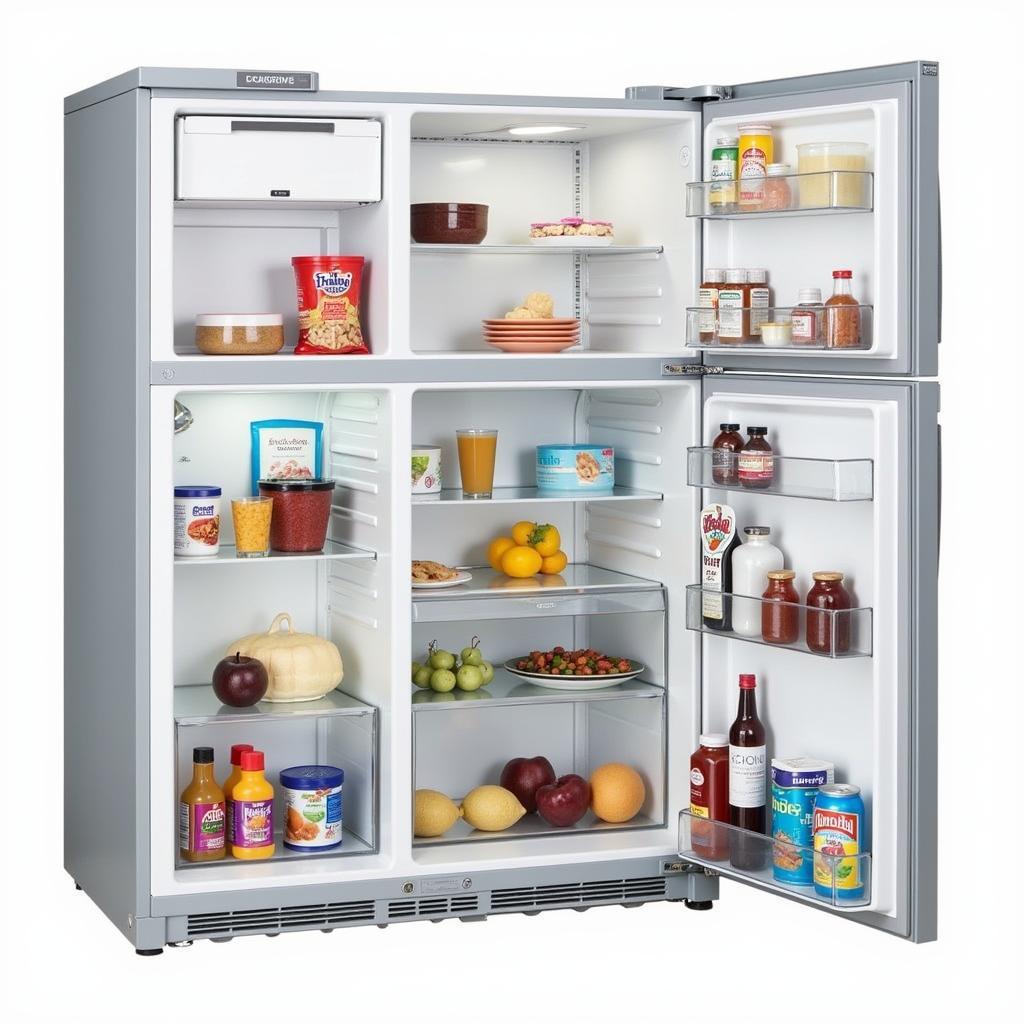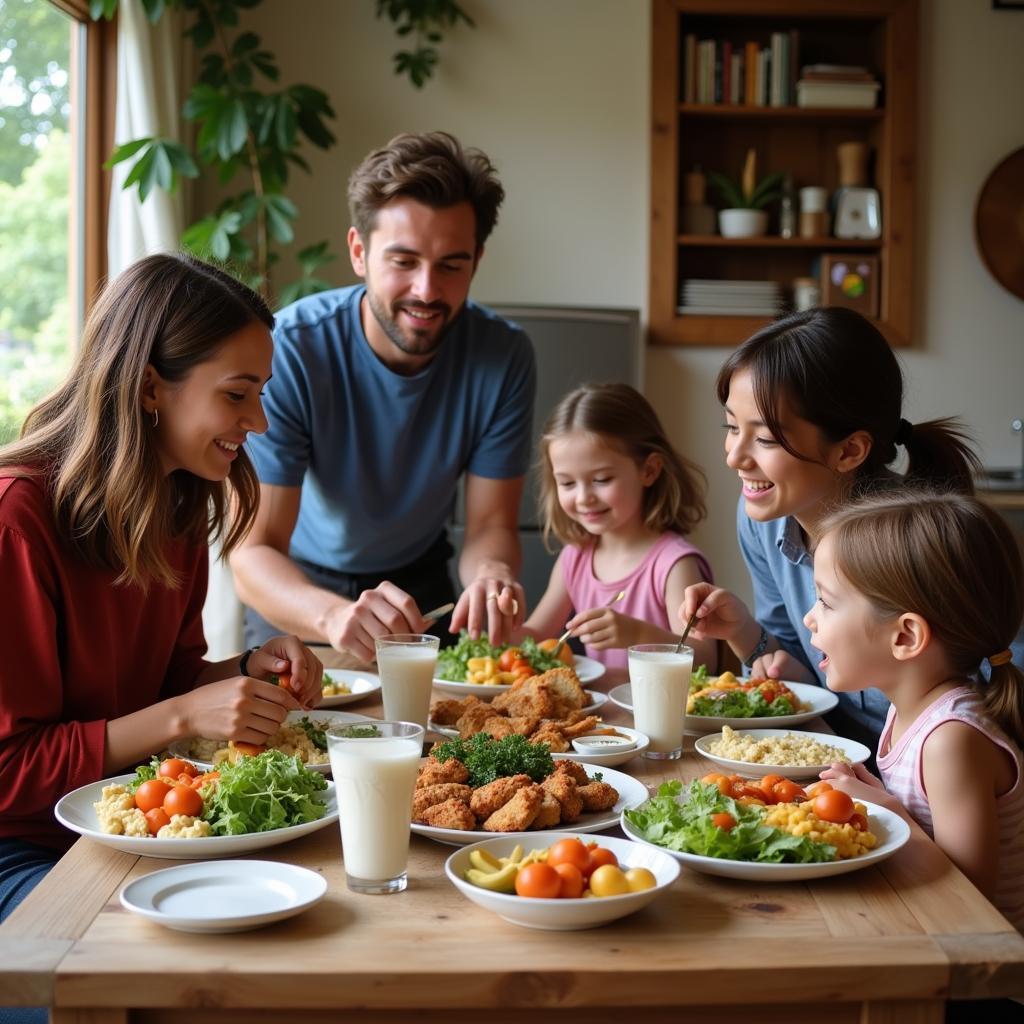In a world grappling with environmental concerns, adopting eco-conscious habits in every aspect of our lives is crucial. This extends to how we store our food, a seemingly small action that can make a big difference. Environmentally Friendly Food Storage is about minimizing waste, reducing our carbon footprint, and keeping our food fresh and safe in a way that respects our planet.
Ditch the Plastic, Embrace Sustainable Alternatives
Plastic wrap and single-use plastic bags have long been kitchen staples, but their environmental impact is undeniable. Luckily, a variety of eco-friendly alternatives are available to keep your food fresh without the guilt:
- Beeswax Wraps: These natural wraps are made from cotton cloth coated in beeswax, offering a reusable and biodegradable alternative to plastic wrap.
- Reusable Silicone Food Bags: Perfect for snacks, sandwiches, and freezing leftovers, these durable bags are a great way to reduce plastic waste.
- Glass Containers: A classic choice, glass containers are non-toxic, microwave-safe, and don’t retain odors or stains.
- Stainless Steel Containers: Durable and lightweight, stainless steel is a great option for on-the-go storage.
 Eco-Friendly Food Storage Alternatives
Eco-Friendly Food Storage Alternatives
Composting: From Table Scraps to Garden Gold
Food waste is a major contributor to landfills, but composting offers a simple solution to transform kitchen scraps into nutrient-rich soil amendment.
- Start Simple: You don’t need a fancy setup to start composting. A simple compost bin or even a designated corner in your yard can suffice.
- What to Compost: Fruit and vegetable scraps, coffee grounds, eggshells, and yard waste are all excellent additions to your compost pile.
- Reap the Rewards: Use the finished compost to nourish your garden and reduce the need for chemical fertilizers.
Mindful Consumption: Reducing Food Waste from the Start
One of the most effective ways to practice environmentally friendly food storage is to minimize food waste in the first place. Here are some tips:
- Plan Your Meals: Planning your meals in advance can help you buy only what you need, reducing the chances of food going bad.
- Proper Storage: Store fruits and vegetables separately to prevent spoilage. Leafy greens stay fresh longer when wrapped in a damp cloth and stored in the refrigerator.
- FIFO Method: Adopt the “First In, First Out” method. When putting away groceries, move older items to the front of your refrigerator or pantry to ensure they get used first.
 Implementing FIFO for Food Storage
Implementing FIFO for Food Storage
Eco-Friendly Packaging: Supporting Sustainable Brands
When shopping for food, consider the packaging. Look for products packaged in eco friendly packaging for food:
- Recyclable Materials: Opt for products packaged in materials like cardboard, glass, or aluminum that can be easily recycled.
- Minimal Packaging: Choose products with minimal packaging to reduce waste.
- Compostable Packaging: Some companies are now using compostable packaging made from plant-based materials.
The Benefits of Sustainable Food Storage
Environmentally friendly food storage goes beyond just protecting the planet; it also benefits you directly:
- Healthier Food: Storing food in non-toxic containers ensures that harmful chemicals don’t leach into your meals.
- Cost Savings: Reusable storage options save you money in the long run by eliminating the need to constantly buy disposable products.
- Reduced Waste: By minimizing food waste and using eco-friendly storage solutions, you’re contributing to a healthier planet for generations to come.
 Sustainable Food Practices for a Healthier Lifestyle
Sustainable Food Practices for a Healthier Lifestyle
FAQs About Environmentally Friendly Food Storage
Q: Are beeswax wraps a good alternative to plastic wrap?
A: Absolutely! Beeswax wraps are washable, reusable, and biodegradable, making them a fantastic eco-friendly alternative to plastic wrap.
Q: What is the best way to store leftovers?
A: Glass containers are ideal for storing leftovers as they are microwave-safe and don’t retain odors or stains.
Q: What are some simple tips to reduce food waste?
A: Plan your meals in advance, store food properly, and adopt the FIFO method to minimize food spoilage.
Conclusion
Embracing environmentally friendly food storage practices is a simple yet powerful way to make a positive impact on the planet. By making conscious choices about the storage containers we use, minimizing food waste, and supporting sustainable brands, we can all contribute to a greener and healthier future. Remember, every small step counts. Start incorporating these eco-friendly practices into your kitchen today!
Need help finding the right containers for food to go? Looking for round food storage containers? At Mina Cones Food, we’re passionate about providing sustainable solutions for your food storage needs.
Contact us at 02437655121 or email us at [email protected]. Our dedicated team is available 24/7 to assist you. Visit us at 3PGH+8R9, ĐT70A, thôn Trung, Bắc Từ Liêm, Hà Nội, Việt Nam to explore our wide range of eco-friendly food storage solutions.